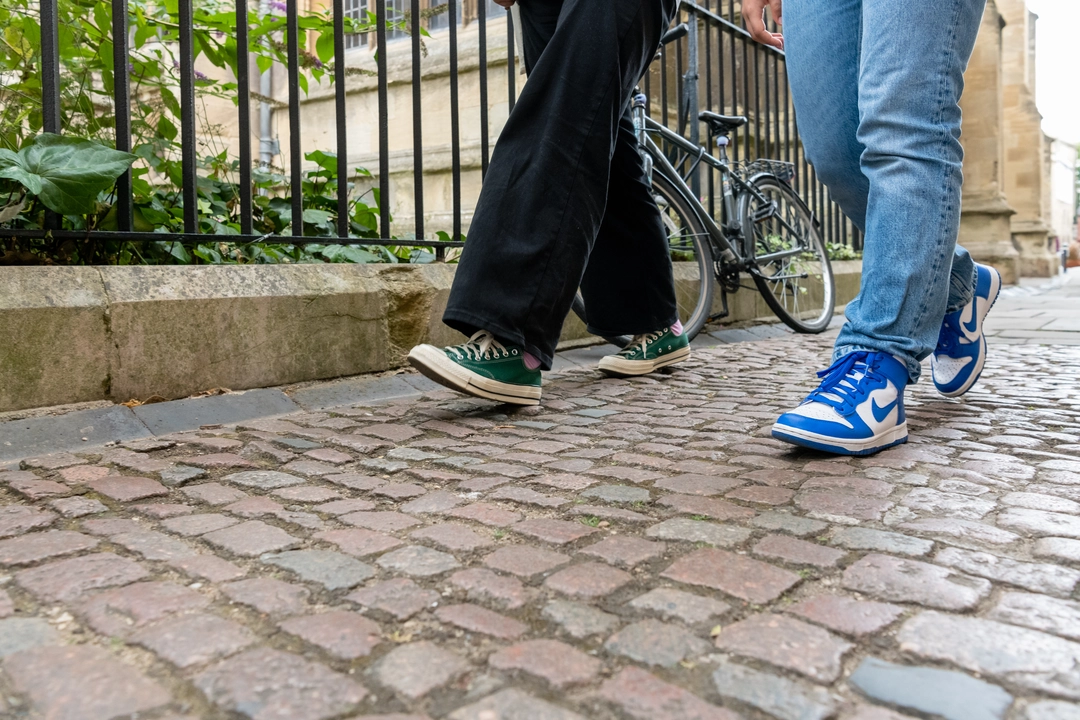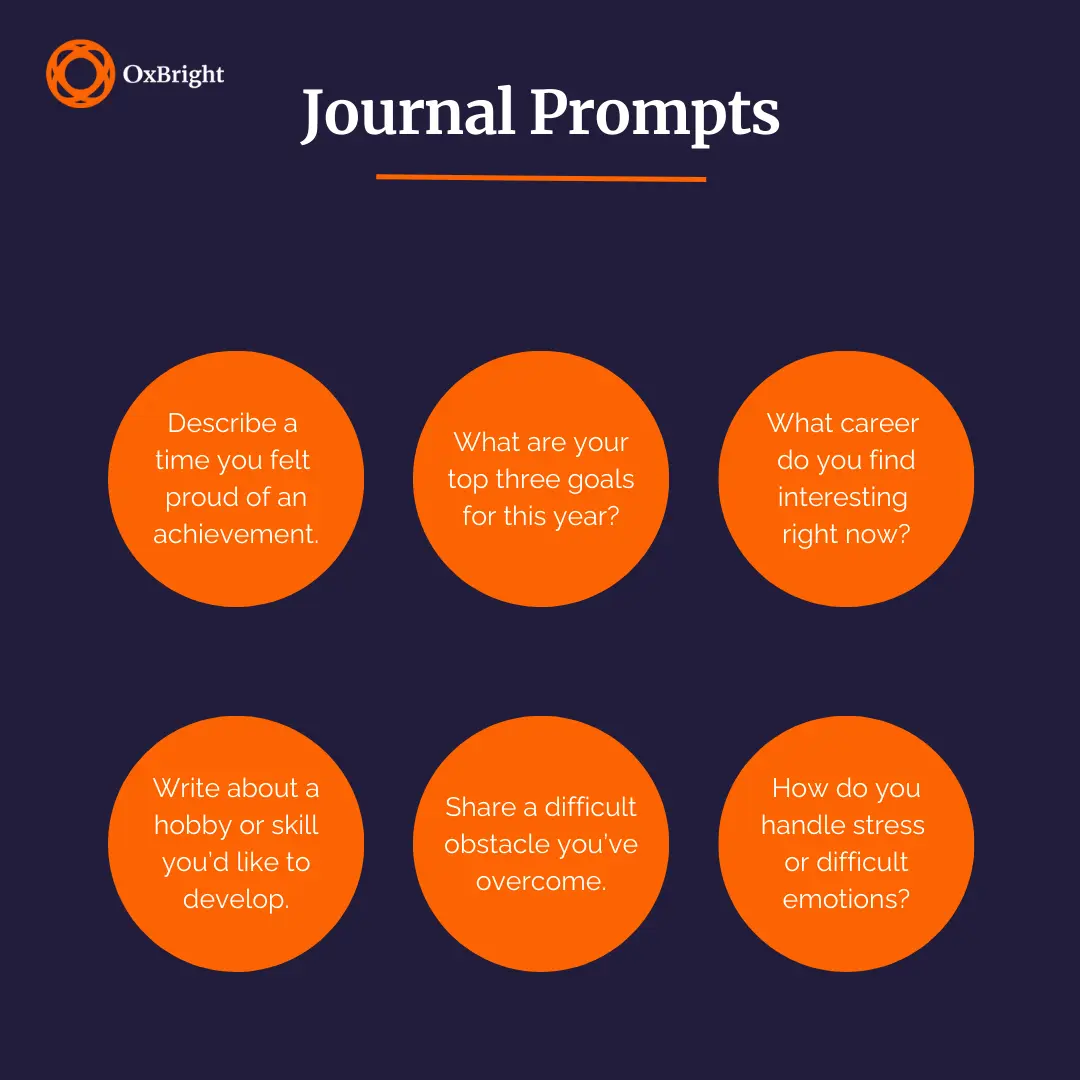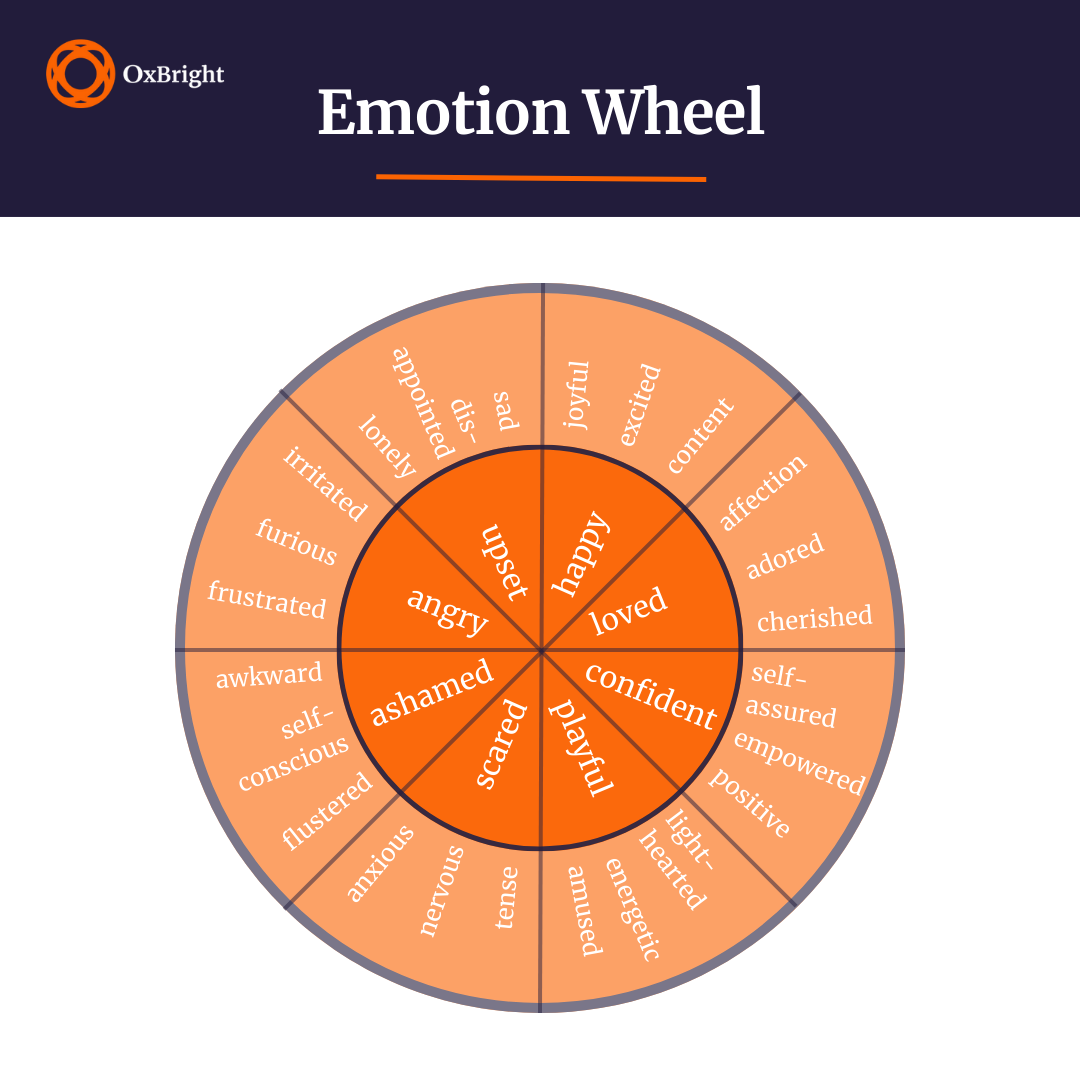Top Self-Reflection Resources for Student Success

Personal growth goes hand-in-hand with self-reflection. By better understanding ourselves, we can identify and develop the personal skills and attributes that will bring us closer to our goals.
The right self-reflection tools can help us achieve our academic potential and future career goals.
Our handy guide to the top self-reflection resources for students will help you get started on your journey of personal growth and self-discovery!
1. Journalling for Self-Reflection
One of the best-known self-reflection practices is journalling. This is a highly effective tool to enhance self-awareness and emotional intelligence. By recording your thoughts, emotions and personal experiences, you can identify patterns, track changes, and better understand how you think and feel.
Journalling is a great way to identify the obstacles and experiences you find personally challenging. Try to reflect on the reasons you find something difficult and how you might make it more manageable.
Equally, recording your achievements and positive experiences can be especially rewarding to look back on – particularly for inspiration and motivation!
Here are some journalling prompts to get you started:

Journalling can be particularly helpful when making big decisions like which course to apply for at university or which career path to choose. With a helpful record of times you’ve thrived or struggled in the past, a journal can be very useful when considering the best options for your future.
There are also lots of journalling apps available like Day One and Journey, offering a variety of methods – like keeping a gratitude journal – so you can find something that suits you best!
2. Online Self-Assessment Questionnaires
A good place to start self-reflection and personal growth is with some self-assessment to better understand your strengths and weaknesses, and to refine your goals.
There’s an array of self-assessment questionnaires online to help you reflect on your personality traits, learning styles, strengths and weaknesses, and potential career paths – we recommend starting with the OxBright Career Test!
Designed by professionals, many of these resources offer a full profile of results for self-reflection.
3. Goal-Setting Apps and Tools
During self-reflection, it’s natural for new goals to crop up, and there are lots of goal-setting apps and tools to help you get started with setting goals and tracking your progress!
Some of our favourite apps include Todoist and Habitica. With features to track your progress, built-in reminders, and handy visualisations, they provide a helpful framework to keep you focused and on the right path.
The SMART approach is another well-established goal-setting tool, helping you to set attainable goals and work towards them in a realistic way. Remember to make your goals:
Specific
Measurable
Achievable
Relevant
Time-bound
4. Mindfulness and Meditation Apps
Self-reflection helps you develop an awareness of your own thoughts and feelings, and an important part of this is learning to think mindfully.
Mindfulness and meditation are an important cornerstone of any self-reflection journey. They can teach you how to better regulate your emotions, effectively cope with stress, and improve your quality of sleep. Incorporating mindfulness into your daily routine can help you tackle your goals with focus and confidence!
Using guided meditation apps like Calm and Headspace is a good place to start. These apps offer tailored audio recordings to help with a range of needs.
You can also utilise basic mindfulness exercises like the 4-7-8 breathing technique – inhale for four seconds, hold for seven seconds, exhale for 8 seconds. This helps to reduce stress and relax your body, helping you to stay calm under pressure.
5. Emotional Intelligence Exercises
Emotional intelligence is closely linked to self-awareness; developing one will help to develop the other, and both will pay dividends throughout your life.
Academic and personal success is closely linked to emotional intelligence and is an important skill for students of any discipline to develop. Enhancing empathy, self-regulation and social skills will help equip you to confidently face what the future has to offer!
There are plenty of exercises to help you get started. Using an emotional wheel is a good starting exercise to learn how to identify and label your emotions. It’s easy to take our feelings for granted so this can be a helpful way to acknowledge and express our emotions.

Other exercises include empathy roleplay – taking turns with a friend to play different roles in a conversation or disagreement, in order to practise empathising with different perspectives – and engaging in active listening.
These kinds of soft skills are increasingly valued by employers, and can also improve your everyday life and relationships!
6. Extracurricular Workshops and Courses
Attending personal development workshops and online courses are a great way to kickstart your journey of self-reflection and development. These courses help develop skills like time management, communication and resilience.
Having these skills in your toolbox from a young age will set you up for anything the future throws at you, making you a valuable asset to any learning or working environment.
These kinds of extracurricular activities contribute to well-rounded personal growth beyond the school curriculum to help you become the best version of yourself.
Workshops and courses are also a great place to meet like-minded people, and forge friendships to help you on your journey of self-reflection. Discussing your thoughts and discoveries can help you tackle any particularly challenging aspects, stay on track and celebrate your achievements!
By exploring and utilising these tools to develop self-awareness and personal growth, you’ll be well prepared to navigate your academic and professional journeys with confidence and resilience.
There’s no limit to the possible benefits of investing in these fundamental emotional skills, and with so many tools and opportunities out there, it’s easy to find something to suit your journey.
Good luck!

By Alice Spiers
Alice is an historian at St Anne’s College, Oxford, where she teaches undergraduate history (predominantly medieval history and historiographical theory). She is also a freelance writer and editor, and a research assistant at the Leverhulme Centre for Demographic Studies.
Get a head start on your future!
Recommended articles
Demystifying the UK University Application Process for Educators
The UCAS applications process for UK universities can appear daunting for students and teachers alike. With that said, educators play an important role in students’ success with their university applications. As such, it is paramount that educators understand the UK...
How to Secure Strong References for Your UCAS Applications
References are a crucial component of your UCAS application, offering a holistic view of your potential as an applicant. Your application will ask for references who can testify to your potential as a student and what you have to offer the university or college...
A Day in the Life of a History Student
It’s been over three years since I first sent my UCAS application off to Oxford University, meeting the early submission deadline by a slither and breathing a sigh of relief. Now, as a third-year History finalist on the cusp of exams, I can safely say that these...


